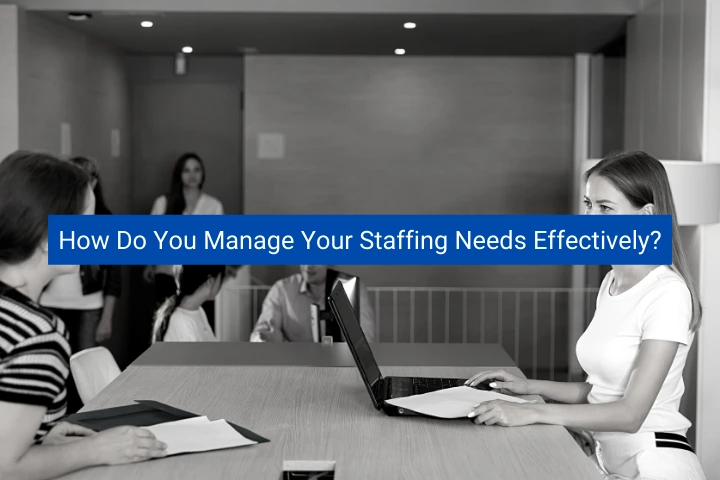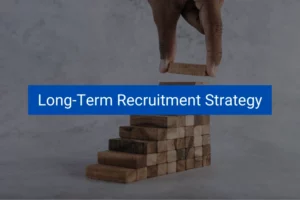Implementing a uniform recruitment process for your company guarantees that all candidates are treated similarly and fairly evaluated and that the process can be replicated across the organization to find the perfect job applicant. This article will give you some strategies that will help you to manage your staffing needs for your organization.

Manage Your Staffing Needs
Here is something to think about while creating an efficient hiring process:
Make sure your job description is precise.
For the candidate to have a complete picture of whether or not they are capable of carrying out the obligations of the position, they need a brief and explicit job description.
This should include, among other things, daily tasks, primary duties and responsibilities, credentials and experience, advancement chances, who the role reports to, required skills and qualifications, salary, business culture, and employee perks.
Related: What are the Most Recent Trends in Recruitment?
Consider employing from inside.
It is vital to examine the talent that already exists inside your firm when commencing the hiring process. You'll have a decent idea of who would be a good fit for the new post before it becomes available if you do frequent reviews with your personnel to discuss career ambitions.
It's a great way to keep top employees while also showing customers that your company is a place where ambitious employees can further their careers.
To find your applicants, use a number of tools.
Although it may be tough if you do not hire frequently, it is critical that you advertise the position in places where those exact candidates are looking for work. It can also be worth looking into hiring an outside recruitment business, such as an IT staffing service, to handle the process on your behalf.
Related: Top 8 Tools for HR Professionals
Consider the following suggestions:
- Use job boards such as Indeed, CV-Library, TotalJobs, and Monster to market your position.
- Using LinkedIn to post job openings and find potential applicants
- Participating in industry-specific events and conferences to expand your network of connections
- Social networking sites
Be clear in your communication.
Ensure that applicants are regularly informed about their status in the hiring process on a regular basis. Because they are applying for multiple positions at the same time, candidates who suffer a delay in response are more prone to become disheartened.
Strong candidates are always in high demand, and if the interview process is excessively slow or disrespectful, they will look for work elsewhere.
Related: Importance of Non-Verbal Communication in Interview
Consider your shortlisting and interview process.
Shortlisting is the process of whittling down a large number of applications. Determine how many people you want to interview before seriously reviewing all of them to find those who meet the job requirements.
If it's difficult to find candidates who meet the standards, it's a sign that either the advertisement wasn't seen by the right individuals or the expectations for the position are too high.
The overall goal of the interview is to determine if the applicant is capable of doing the job duties, thus it's critical to get precise answers by asking open-ended questions like how, what, when, and so on.
Make sure to read their CV thoroughly and analyze all relevant material, asking them to expound on key points as needed, and asking job-specific questions to assess candidates' knowledge and experience.
Related: Tips to screening perfect candidates when hiring?
Orientation of new personnel
Because they assume the hiring process has been completed to a considerable extent, many organizations become complacent at this time. However, it's vital that your new hire gets off to a strong start by going through a rigorous induction and onboarding process that will get them up to speed on their new job.
Allow new staff plenty of time to acclimate, and make that they receive adequate training right away so that corporate policies are followed consistently by all employees.
Conclusion
You will not be disappointed if you follow all of the steps listed above to manage your staffing needs. To be sure, there will always be unanticipated delays and issues when dealing with anything that relies on a huge number of people. Interview cancellations, no-shows, and a general shortage of suitable talent can all cause the cogs in the machine to grind to a halt. It's important to remember, though, that if you set a schedule, provide an accurate work description, and use the most appropriate manner, you'll lessen the chances of any issues arising.
You will be able to future-proof your company for many years if you perform such a thorough recruitment process. Making sure a candidate is a perfect fit for the post and the company's overall workforce culture will increase employee retention, resulting in fewer hiring campaigns down the road and more money and effort saved in the long run.
For Human Resource, Payroll and many more HR Services, visit our website https://lingueeglobal.com/



